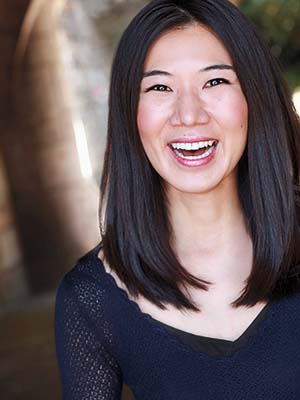Ever since graduating from Amherst and earning an MFA in acting, Jiehae Park ’02 has followed a dual-skill path as actor and playwright, earning a suitcase full of prizes, fine-tuning her writing in half a dozen major workshops and staging multiple readings of her plays.
In 2015 the Yale Repertory Theatre staged her first full-length premiere—a comedy of high-school-achievement manners, peerless. In the coming year, peerless will move on to other theaters, and another of Park’s plays will see its world premiere.
“If there were standardized tests for emerging playwrights, it’s a good bet that Jiehae Park would ace them,” wrote Sylviane Gold in the The New York Times, describing peerless as “darkly comic.”
It’s the story of two Asian-American girls immersed in major-college admissions rituals at a Midwestern high school. Park’s handling of the topic did not surprise her mentor, Amherst’s Playwright-in-Residence Constance Congdon: “She is a very sharp comic writer, and her plays have a bite to them.”
The Barrington Stage Co. produced peerless this past summer, and in 2017 the play will be staged at Chicago’s First Floor Theater; Marin Theatre Co. in Mill Valley, Calif.; and Company One in Boston. Also in 2017, the Oregon Shakespeare Festival will present the world premiere of her play Hannah and the Dread Gazebo from March 29 to Oct. 28.

